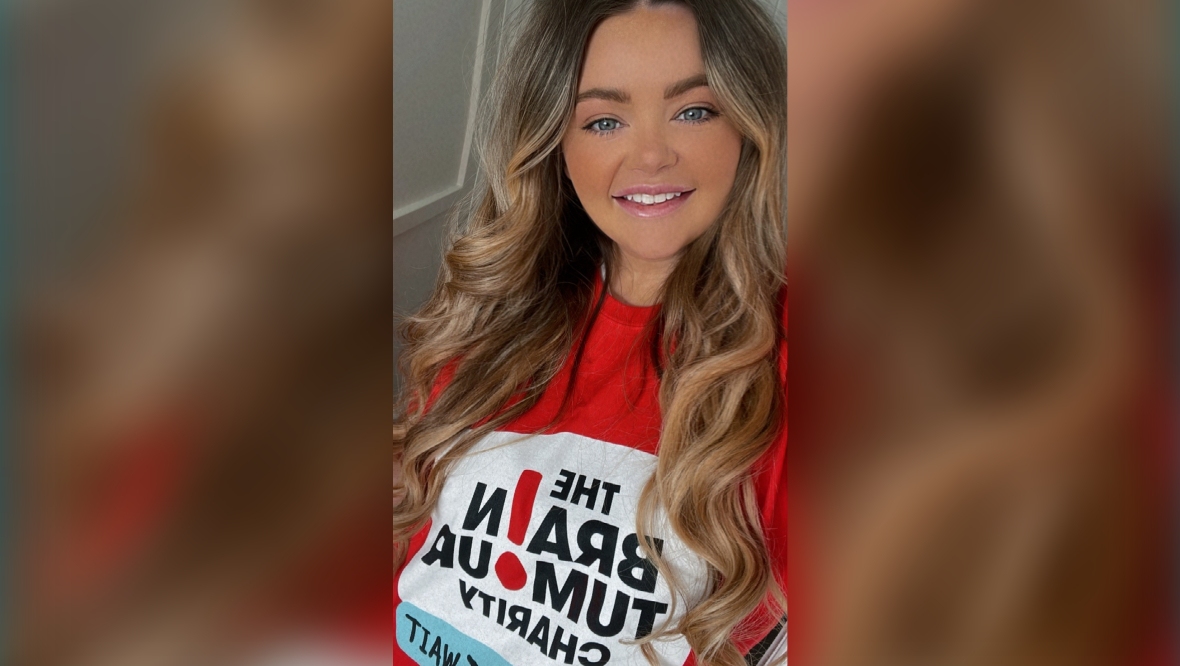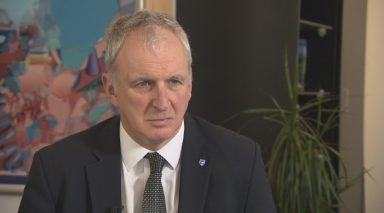A woman who was diagnosed with a brain tumour after collapsing at a garage has urged those with symptoms to see their doctor after new figures showed there has been a 30% rise in diagnoses since 2002.
Jade McMaster, from Glasgow, had a seizure on a petrol forecourt in October 2017, and was diagnosed with a brain tumour on her left temporal lobe shortly afterwards.
The 31-year-old ignored symptoms of migraines and light sensitivity, and put it down to her lifestyle.
Doctors believe the tumour may have been growing for a significant amount of time, putting pressure on her brain and triggering the seizure.
Five years on, Ms McMaster has urged people to be “aware” and encouraged anyone with symptoms to see their doctor.
She said: “I could have so easily had that seizure when driving, which is a scary thought.
“I knew absolutely nothing about brain tumours ahead of my own diagnosis. If I had then I would have been more informed about what it all meant and I would have requested a scan.
“Maybe then the way in which my brain tumour was discovered would have been less dramatic too.
“I should have seen my GP sooner – I know that.
“That’s why I would encourage anyone with any concerning symptoms, or a combination of symptoms, to see their doctor as soon as possible.
“I thought that I just had headaches until I experienced what it could lead to.
“We take a painkiller and get on with the rest of our day. But people need to be aware when this could be a sign of something bigger, even if the chances are small.
“Since my diagnosis I have learned a lot about the disease – importantly, how a diagnosis isn’t necessarily fatal as there’s so many different types of brain tumours which affect people in many different ways.”
The Brain Tumour Charity say the number of people diagnosed with brain tumours has risen by 30% in the last 20 years, according to data from Public Health Scotland – from 822 in 2000-02 to 1,069 in 2017-19.
Dr David Jenkinson, the charity’s chief scientific officer, said: “These worrying figures show just how urgently we need to act on this devastating and life-changing disease in Scotland.
“While brain tumours remain relatively rare, incidence has continued to rise significantly over the last two decades, and this has unfortunately not yet been matched by the tangible progress in diagnosis, treatment and survival outcomes seen in many other cancers.
“We absolutely want to reassure people, that despite this increase in cases, brain tumours are still uncommon.
“But it’s so important that we see greater awareness of the signs and symptoms of the disease to ensure anyone affected can get the diagnosis, treatment and support they need at the earliest opportunity.”
A Scottish Government spokesperson said: “Detecting cancer as early as possible is key to improving patient outcomes.
“That is why we continue to invest in our £44m Detect Cancer Early (DCE) Programme, which adopts a whole systems approach to diagnosing and treating cancer as early as possible.
“An additional £20m has been committed over this parliamentary term.
“A new Early Diagnosis Vision will be developed as part of the new Scottish Government Cancer Strategy, anticipated to launch in April 2023.
“As an individual’s chance of survival depends largely on which cancer they have, with one-year survival ranging from around 20% to almost 100%, our current national cancer plan has taken actions to focus on the improved survival of those ‘less survivable cancers’, such as brain tumours.
“Our Scottish Cancer Network is developing national clinical management pathways (CMPs). Brain tumours will be one of the first three CMPs produced to ensure consistent high standards of care across Scotland.”
Follow STV News on WhatsApp
Scan the QR code on your mobile device for all the latest news from around the country


 The Brain Tumour Charity
The Brain Tumour Charity

























